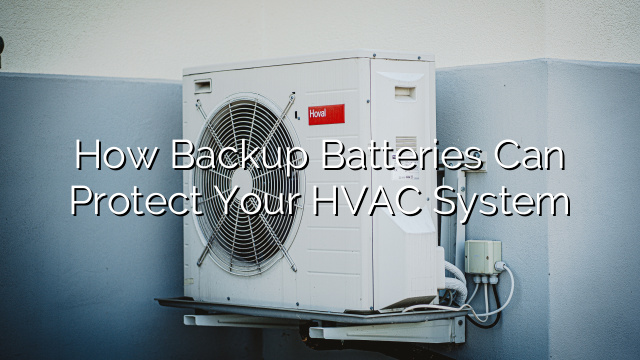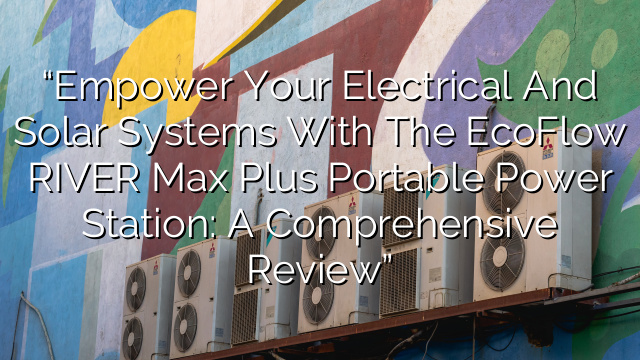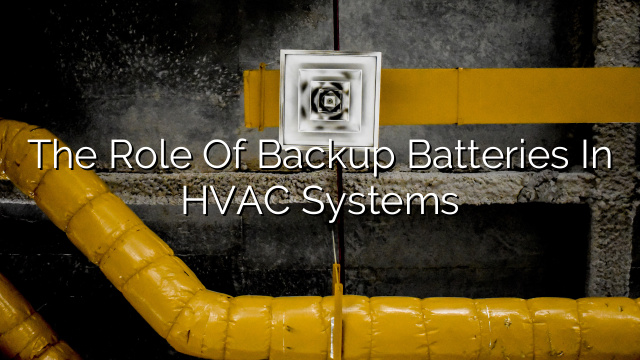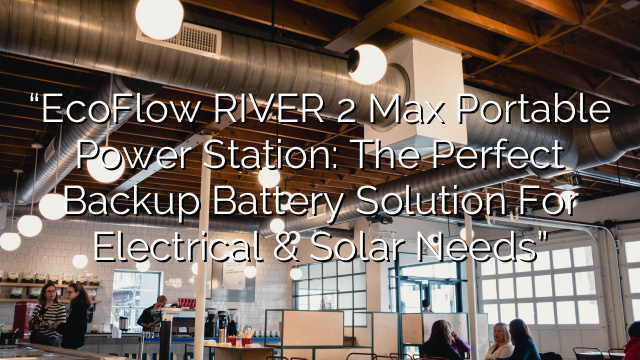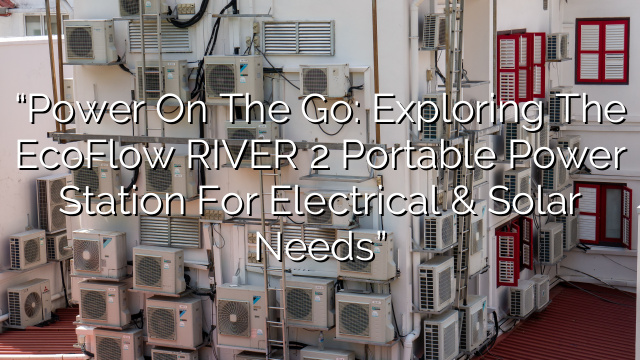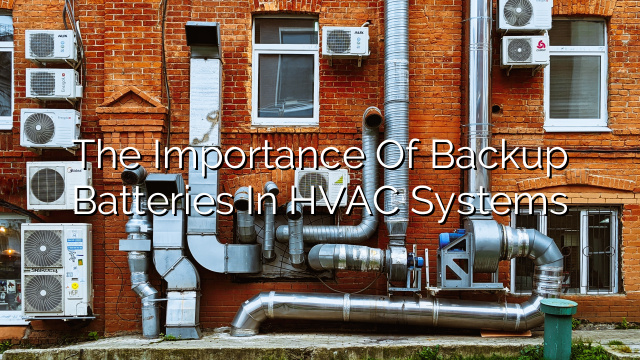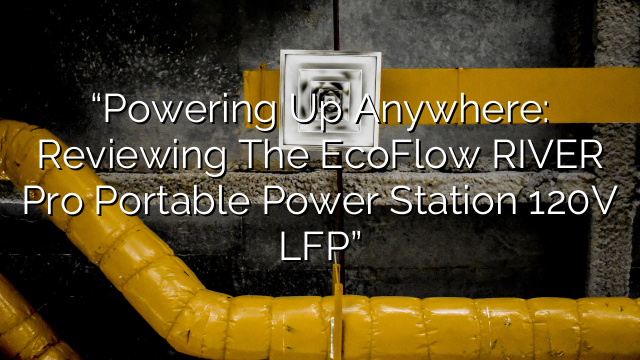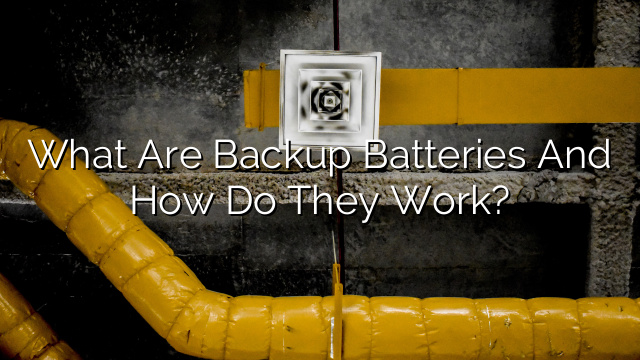Introduction
When it comes to your HVAC system, there’s nothing more frustrating than a power outage. Not only are you left without heating or cooling, but there’s also the risk of damage to your system. That’s where backup batteries come in. In this blog post, we’ll explore how backup batteries can protect your HVAC system, ensuring that you’re comfortable and worry-free even during a power outage.
Why Should You Consider Backup Batteries?
Backup batteries are a reliable solution to keep your HVAC system running smoothly, even when the power goes out. Here are a few reasons why you should consider installing backup batteries for your HVAC system:
- Continuous Operation: With backup batteries, your HVAC system can continue to function seamlessly, providing you with the necessary heating or cooling during a power outage. This not only keeps you comfortable but also helps avoid any disruption in your daily routine.
- Protects Your Investment: HVAC systems are a significant investment, and power surges during outages can damage the sensitive components of your system. Backup batteries act as a barrier against such surges, preventing potential damage and extending the lifespan of your HVAC unit.
- Preserve Indoor Air Quality: Many HVAC systems also play a crucial role in maintaining indoor air quality, especially in terms of ventilation and air filtration. Backup batteries ensure that your HVAC system can continue to circulate and filter the air in your home, even when the main power is down.
- Prevents Frozen Pipes and Water Damage: In colder climates, a power outage in winter can lead to frozen pipes and potential water damage. Backup batteries keep your HVAC system running, providing heat to your home and preventing pipes from freezing.
How Do Backup Batteries Work?
Backup batteries work by storing electrical energy and releasing it during a power outage. When the main power supply is interrupted, the backup battery automatically takes over, providing a seamless transition to keep your HVAC system up and running.
Backup batteries are typically connected to the essential components of your HVAC system, such as the blower motor, controls, and thermostats. This enables the system to continue functioning, ensuring the delivery of heated or cooled air throughout your home.
Types of Backup Batteries for HVAC Systems
There are various types of backup batteries available for HVAC systems. The most common options include:
- Lead Acid Batteries: These are cost-effective and widely used for backup power solutions. While they are relatively heavy and require regular maintenance, they offer a reliable source of power for your HVAC system.
- Lithium-Ion Batteries: Lithium-ion batteries are lightweight, compact, and have a longer lifespan compared to lead-acid batteries. Although they are more expensive, they offer excellent power storage capacity and are virtually maintenance-free.
- Nickel-Cadmium (NiCd) Batteries: NiCd batteries are known for their high discharge rate and long lifespan. They are highly durable and often used in commercial applications. However, they can be expensive and require special disposal procedures due to their heavy metal content.
When choosing a backup battery for your HVAC system, it’s important to consider factors such as your specific power requirements, available space for installation, and budget.
Installation and Maintenance
Installing backup batteries for your HVAC system is best done by a professional. They have the expertise to assess your specific requirements, recommend the suitable battery type and capacity, and ensure proper installation.
Regular maintenance and inspections are essential to keep your backup batteries in optimal condition. Here are a few maintenance tips:
- Check Battery Charge: Regularly check the battery charge level to ensure it’s sufficiently charged to provide backup power during an outage.
- Clean Battery Terminals: Over time, the terminals of the backup battery can accumulate dirt and corrosion. Clean them periodically to ensure a good electrical connection.
- Replace Aging Batteries: Backup batteries have a limited lifespan. Consult with a professional to determine when to replace aging batteries to maintain the efficiency and reliability of your backup power system.
FAQs
Q: Are backup batteries necessary for all HVAC systems?
A: Backup batteries are not necessary for all HVAC systems. If you live in an area with frequent power outages or rely heavily on your HVAC system for comfort and safety, backup batteries are a worthwhile investment. Consult with an HVAC professional to determine if backup batteries are recommended for your specific system.
Q: How long do backup batteries last during a power outage?
A: The backup power duration depends on several factors, including the battery capacity, the power requirements of your HVAC system, and the amount of energy being consumed. Backup batteries can typically provide power for a few hours during a power outage.
Q: Can backup batteries be used for other household appliances during a power outage?
A: Backup batteries can be configured to power specific household appliances during a power outage, but their primary purpose is to provide backup power to your HVAC system. It’s important to consult with an HVAC professional to ensure the proper configuration and capacity for your specific needs.
Q: How much do backup batteries cost?
A: The cost of backup batteries varies depending on the type, capacity, and brand. Lead-acid batteries are generally more affordable, while lithium-ion batteries tend to be more expensive. It’s best to consult with an HVAC professional to determine the most suitable and cost-effective option for your HVAC system.
Q: Can backup batteries be installed in existing HVAC systems?
A: Backup batteries can be installed in existing HVAC systems, but it’s important to consider factors such as available space, compatibility with the system, and electrical requirements. Consulting with an HVAC professional is recommended to ensure a proper and safe installation.
Q: Do backup batteries require any special permits or approvals?
A: The need for permits or approvals depends on local regulations and building codes. It’s important to check with your local authorities or consult with an HVAC professional to ensure compliance with any necessary requirements.
In conclusion, backup batteries provide a reliable solution to protect your HVAC system during power outages. They ensure continuous operation, protect your investment, preserve indoor air quality, and prevent potential damage. By investing in backup batteries and ensuring proper installation and maintenance, you can enjoy uninterrupted comfort and peace of mind all year round.

